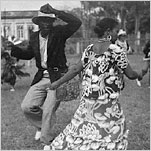(Page 2 of 2)
“The question is why do people create this illusion of magical power?” said the lead author, Emily Pronin, an assistant professor of psychology and public affairs at Princeton. “I think in part it’s because we are constantly exposed to our own thoughts, they are most salient to us” — and thus we are likely to overestimate their connection to outside events.
The brain, moreover, has evolved to make snap judgments about causation, and will leap to conclusions well before logic can be applied. In an experiment presented last fall at the Society for Neuroscience meeting, Ben Parris of the University of Exeter in England presented magnetic resonance imaging scans taken from the brains of people watching magic tricks. In one, the magician performed a simple sleight of hand: he placed a coin in his palm, closed his fingers over it, then opened his hand to reveal that the coin was gone.
Dr. Parris and his colleagues found spikes of activity in regions of the left hemisphere of the brain that usually become engaged when people form hypotheses in uncertain situations.
These activations occur so quickly, other researchers say, that they often link two events based on nothing more than coincidence: “I was just thinking about looking up my high school girlfriend when out of the blue she called me,” or, “The day after I began praying for a quick recovery, she emerged from the coma.”
For people who are generally uncertain of their own abilities, or slow to act because of feelings of inadequacy, this kind of thinking can be an antidote, a needed activator, said Daniel M. Wegner, a professor of psychology at Harvard. (Dr. Wegner was a co-author of the voodoo study, with Kimberly McCarthy of Harvard and Sylvia Rodriguez of Princeton.)
“I deal with students like this all the time and I say, ‘Let’s get you overconfident,’ ” Dr. Wegner said. “This feeling that your thoughts can somehow control things can be a needed feeling” — the polar opposite of the helplessness, he added, that so often accompanies depression.
Magical thinking is most evident precisely when people feel most helpless. Giora Keinan, a professor at Tel Aviv University, sent questionnaires to 174 Israelis after the Iraqi Scud missile attacks of the 1991 gulf war. Those who reported the highest level of stress were also the most likely to endorse magical beliefs, like “I have the feeling that the chances of being hit during a missile attack are greater if a person whose house was attacked is present in the sealed room,” or “To be on the safe side, it is best to step into the sealed room right foot first.”
“It is of interest to note,” Dr. Keinan concluded, “that persons who hold magical beliefs or engage in magical rituals are often aware that their thoughts, actions or both are unreasonable and irrational. Despite this awareness, they are unable to rid themselves of such behavior.”
On athletic fields, at the craps table or out sailing in the open ocean, magical thinking is a way of life. Elaborate, entirely nonsensical rituals are performed with solemn deliberation, complete with theories of magical causation.
“I am hoping I do not change my clothes for the rest of the season, that I really start to stink,” said Tom Livatino, head basketball coach at Lincoln Park High School in Chicago, who wears the same outfit as long as his team is winning. (And it usually does.)
The idea, Mr. Livatino said, is to do as much as possible to recreate the environment that surrounds his team’s good play. He doesn’t change his socks; he doesn’t empty his pockets; and he works the sideline with the sense he has done everything possible to win. “The full commitment,” he explained. “I’ll do anything to give us an edge.”
Only in extreme doses can magical thinking increase the likelihood of mental distress, studies suggest. People with obsessive-compulsive disorder are often nearly paralyzed by the convictions that they must perform elaborate rituals, like hand washing or special prayers, to ward off contamination or disaster. The superstitions, perhaps harmless at the outset, can grow into disabling defense mechanisms.
Those whose magical thoughts can blossom into full-blown delusion and psychosis appear to be a fundamentally different group in their own right, said Mark Lenzenweger, a professor of clinical science, neuroscience and cognitive psychology at Binghamton, part of the State University of New York. “These are people for whom magical thinking is a central part of how they view the world,” not a vague sense of having special powers, he said. “Whereas with most people, if you were to confront them about their magical beliefs, they would back down.”
Reality is the most potent check on runaway magical thoughts, and in the vast majority of people it prevents the beliefs from becoming anything more than comforting — and disposable — private rituals. When something important is at stake, a test or a performance or a relationship, people don’t simply perform their private rituals: they prepare. And if their rituals start getting in the way, they adapt quickly.
Mr. Livatino lives and breathes basketball, but he also recently was engaged to be married.
“I can tell you she doesn’t like the clothes superstition,” he said. “She has made that pretty clear.”














